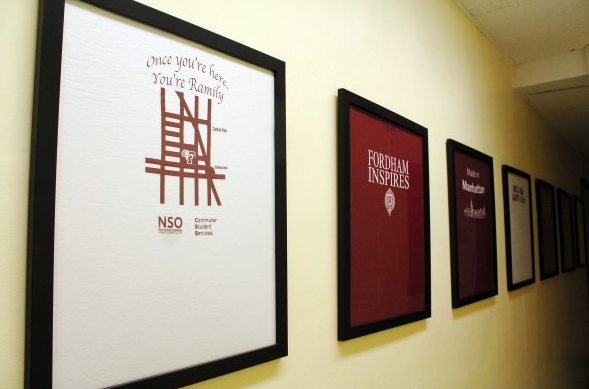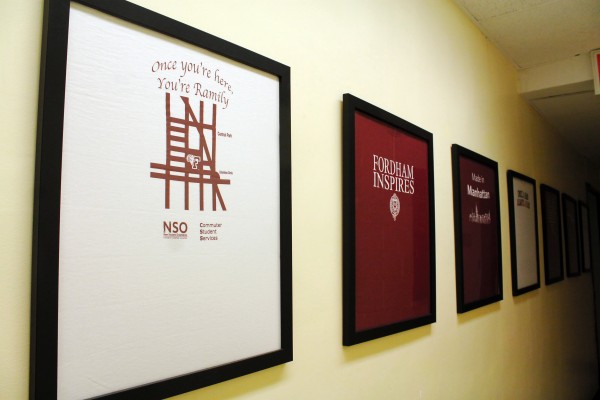Ivy League Rejects: You’re Better Off Here at Fordham

August 28, 2014

When a former Yale professor publishes an article titled “Don’t Send Your Kid to the Ivy League,” quite a bit of discussion is bound to ensue; after all, the Ivy League has produced countless American leaders, and it stands as the ultimate establishment of higher education in the country—arguably the world. I highly recommend reading William Deresiewicz’s indictment of the Ivy League on New Republic, especially to Fordham students—even more so to those that ever dreamed of attending an Ivy League school—because it touches upon a topic that will bring joy to the Jesuit heart: liberal arts education as the most authentic education. Institutions like Fordham have remained committed to delivering a true education that nurtures all aspects of the person, rather than mass-producing perfect, ambitious graduates that have one goal in mind—a narrow notion of success that translates into money, prestige and social status.
I have several reasons to believe that a Jesuit education is more valuable than an Ivy League education. Deresiewicz points out that intellectual curiosity is often absent among the student populations of the most prestigious universities because success is foremost, and failure is not an option. That no-failure culture prevents students from stepping outside of their comfort zone, out of fear of of getting anything below an A in a class, even if that means missing out on an opportunity. At Fordham, students are basically forced out of their comfort zones through—you guessed it—the Core. I have been exposed to areas of study ranging from art history to natural science, which have nothing to do with the field of work I want to enter into once I graduate. And yet, I don’t think a single one of those lectures was a waste of my time, and that is because I didn’t come to college just to learn how to be a professional, but rather to get an education. The students that are attracted to an academic program like Fordham’s are usually intellectually curious, and don’t mind the prospect of delving deeper into intellectual topics outside of their major. The environment at Fordham is no doubt less cut-throat than that of Harvard or Yale, so students can actually enjoy those subjects they expect to get a B or C on.
Another trend in the college admissions process that Deresiewicz takes issue with is the commodification of experience, the value of which is often reduced to a couple of lines on a college application. Two types of experience—service and travel—have been readily pre-packaged for students to add onto their college applications in a way that is as laughable as it is concerning. Not only is the experience shallow and rather inauthentic, but it is also a way for parents to buy their kid an advantage in the admissions process if they can afford it.
In addition to being great college essay material, community service has become an unspoken requirement to be a serious Ivy League candidate—however, what exactly is it about doing service that makes someone a better candidate? Isn’t it the desire to do good for others? That desire is completely taken out of the equation when service is basically required to get into your dream school, and the incentive is entirely selfish. If you’ve ever heard any Jesuit give a speech, you have probably heard the words “men and women for others” at least half a dozen times. That is because service in the spirit of doing good for others is a pillar of the Jesuit tradition. At Fordham, service is not required or rewarded, but it is certainly encouraged and engrained in the school’s culture. Service is regarded as something that is rewarding on its own.
The principle of cura personalis, or care of the entire person, translates into a community that encourages individuals to grow not only intellectually, but also emotionally, morally and physically. I experienced this most clearly while I attended the Campus Ministry’s Women’s Retreat. For others, it may be during a Global Outreach (GO!) project or a philosophy class discussion. I realized that the Fordham community goes to great lengths to provide opportunities for the individual student to experience learning beyond intellectually challenging courses.
Deresiewicz proposes two main purposes of a true college education: to learn how to think and to build a self. Discussing the latter, he suggests that “it is only through the act of establishing communication between the mind and the heart, the mind and experience, that you become an individual, a unique being—a soul. The job of college is to assist you to begin to do that.” Using this definition, there is no better education than a holistic Jesuit one. While Ivy league schools may produce graduates that have a higher earning power thanks to a prestigious diploma, a school with strong Jesuit values like Fordham produces men and women that are well-rounded not only in their academic knowledge, but also as individuals. That’s not to say that an Ivy education isn’t valuable; however, my definition of “return on investment” expands beyond the salary I will make after I graduate.









